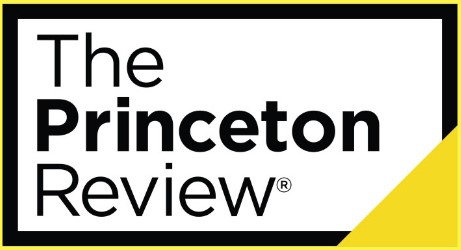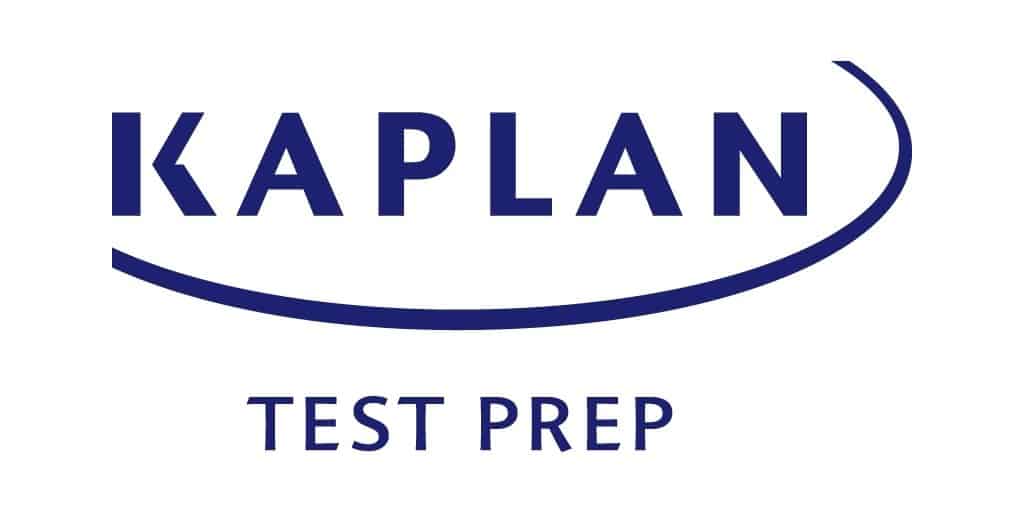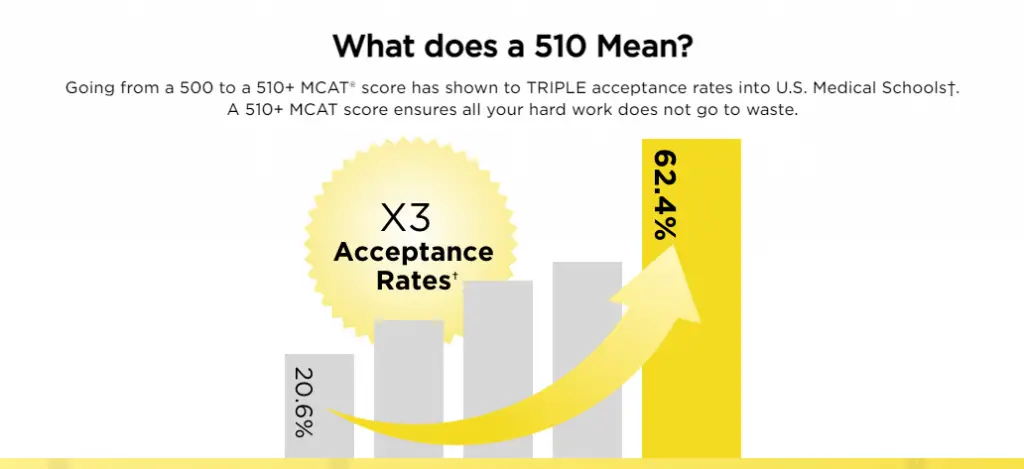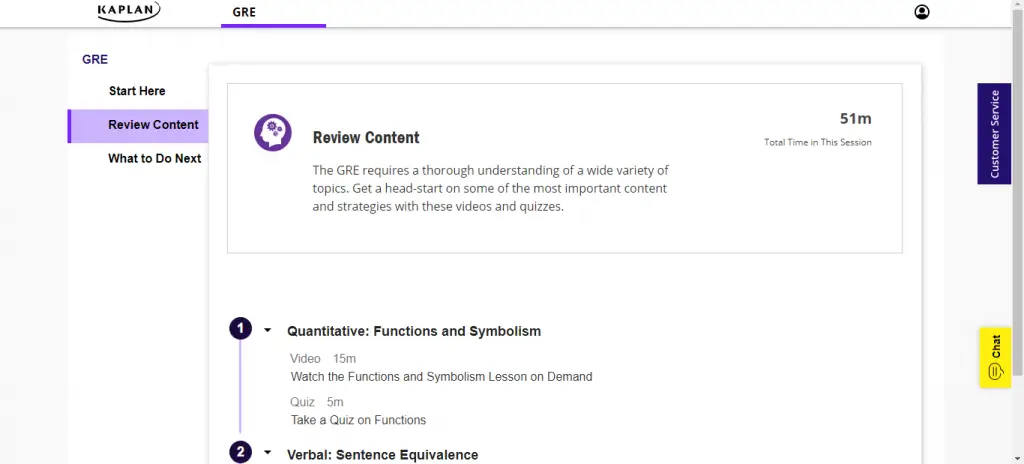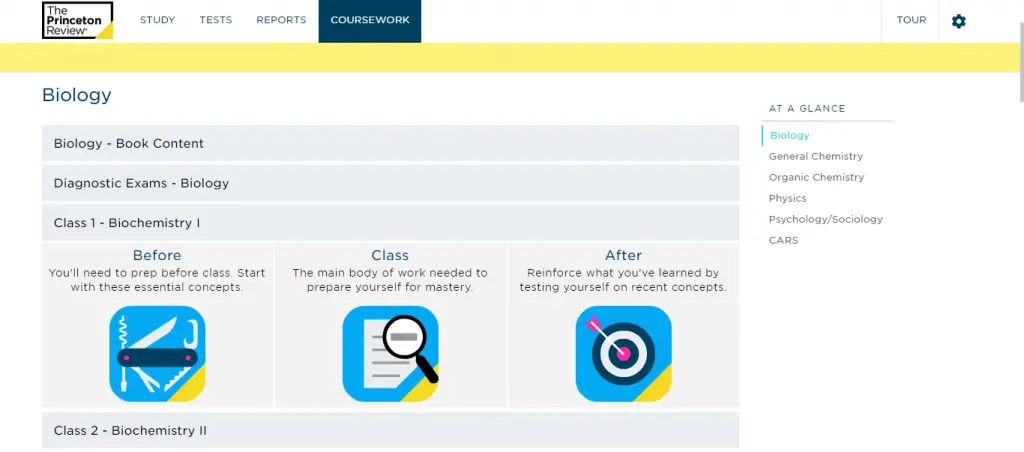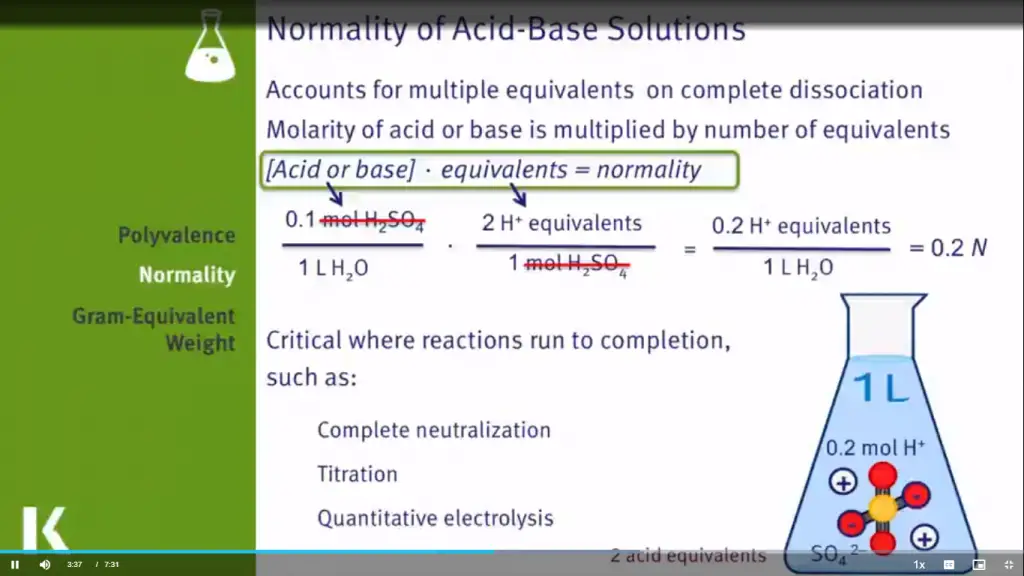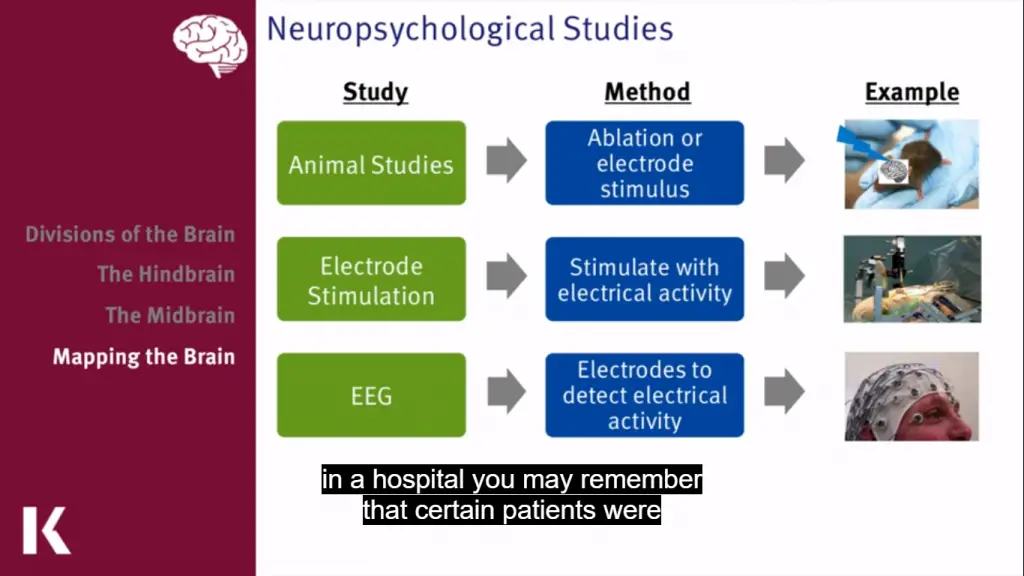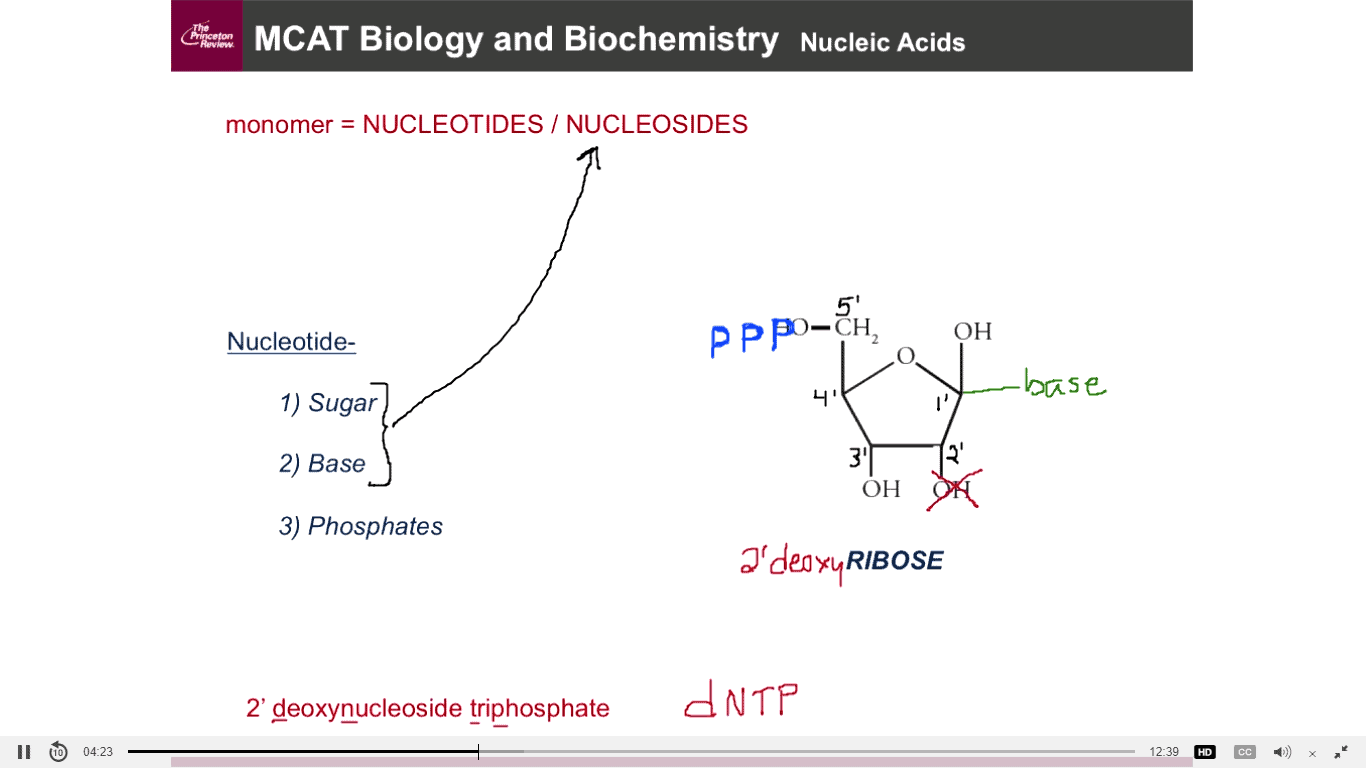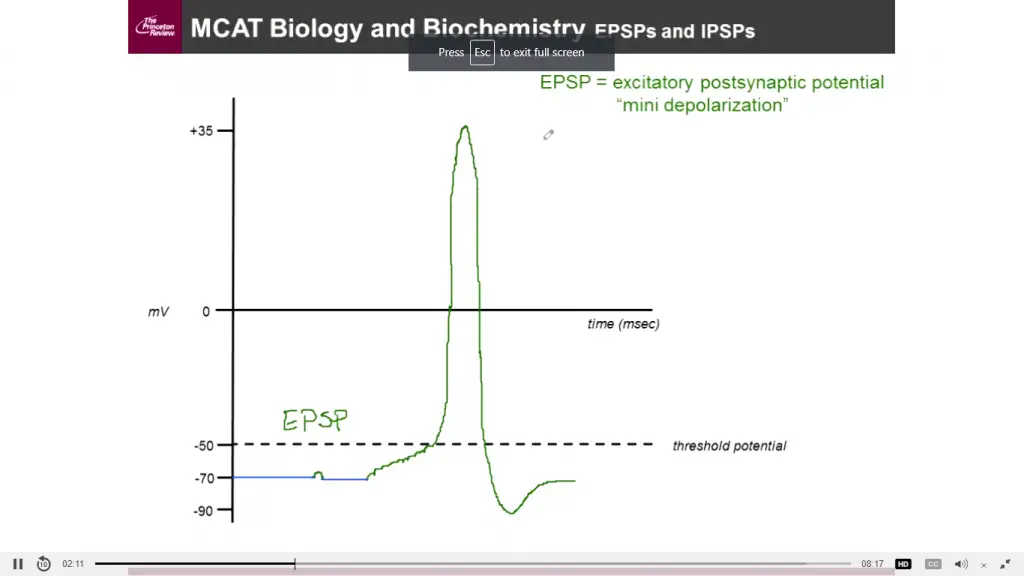Kaplan vs The Princeton Review MCAT Prep Course 2023: Who Is The Best?
Preparing for the MCAT often requires you to enroll in a prep course that best fits your studying style, goals, and budget. This is why, today, we take a look and compare two of the most recognized MCAT prep courses online: Kaplan vs The Princeton Review (TPR) MCAT.
Which MCAT prep course is better? Which one has more to offer? You’ll know the answers in this comparison review. We’ll compare the two courses in different areas and determine which course is better in terms of content, pricing, and ease of use. Plus, I’ll provide screenshots to give you a better overview of the courses.
Ready? Let’s begin.
Kaplan vs The Princeton Review MCAT: The Basics
Kaplan and The Princeton Review are familiar names in the test preparation industry. From the SAT to graduate school admission test preparations, both courses provide quality instruction and materials that help thousands of students every year.
From a general perspective, both courses are of the same nature in terms of services: live courses, self-paced prep, tutoring – they have it all. However, each of the course offers exclusive features that make their program stand out.
Take a look at the comparison table below for a solid grasp of what each course provides:
|
Kaplan |
The Princeton Review |
|
|
Score Guarantee |
Yes; Higher Score Guarantee: if you did not score higher than your baseline score |
Yes; 510+ Score Guarantee |
|
Books |
8 subject review books |
11 subject review books |
|
Prep Course Offers |
Self-study, Live online, and In-person |
Self-study, Live online, and In-person |
|
Tutor Program |
Yes |
Yes |
|
Practice Tests |
16 full-length practice tests |
16 full-length practice tests |
|
Live instruction Hours |
12 3-hour classes |
123 hours of live instruction and practice |
|
Course Access |
5 months |
9 months |
|
Personalized Study Plan |
Yes |
Yes |
|
Number of Hours for Interactive Video Lessons |
130 interactive science review videos |
500+ MedFlix videos |
|
Number of practice questions |
2900+ |
2700+ |
|
AAMC Content Material Access |
Yes |
Yes |
|
Additional Resources |
Qbank, Flashcards, Great visual representation in subject review books |
4 to 6 subject-matter experts, MedFlix videos, Medical School Admissions Advantage Sessions |
|
Price |
Expensive; $1,799 – $6,999 |
Expensive and similar to Kaplan’s pricing; $1,699 – $6,999 |
Now, we will take a closer look at both prep courses’ features and identify which course is better in particular areas.
- Course content and effectiveness
- Pricing
- User Experience
Kaplan vs The Princeton Review MCAT: Course Content and Effectiveness
Program Offer
As mentioned earlier, both courses provide live courses, self-paced, and tutoring services.
In terms of live courses, TPR provides more instruction hours than Kaplan. Whether you’re taking the 510+ package or the Ultimate Course package, you’ll get 123 hours of live instruction. This is way more than what Kaplan Live Online or In-person provides, which is only at 36 hours total.
If you’re looking for a very extensive MCAT preparation program, then Kaplan’s Bootcamp option might be ideal for you. It provides 700+ hours of instruction, practice, and support. It’s Kaplan’s most rigorous MCAT course. You probably guessed it at this point, but yes, it does come pretty expensive at around $7,000.
Here’s a table comparing the content of Kaplan’s Live Online course and The Princeton Review’s Ultimate course:
|
Kaplan Live Online* |
The Princeton Review Ultimate |
|
|
*If you get the Kaplan Live Online Plus package, you’ll get 3 hours of 1-on-1 tutoring, 3 additional review books, and med school admissions help
Both prep courses provide score guarantees. However, The Princeton Review offers packages that guarantee not just a higher score, but also a specific MCAT score of 510+ and 515+, depending on the course package that you’ll choose.
The 510+ Course (1) and the 515+ Immersion course are TPR’s most intensive MCAT courses by far. These options are advantageous for students who aim to boost their chances of getting accepted into top medical schools.
It’s not surprising that both courses are expensive. They do provide students with a personal study manager and more content.
When it comes to the program content and quantity of resources, I give the edge to The Princeton Review. Outside Kaplan’s Bootcamp option, which is extremely pricey, TPR’s number of instruction hours outnumber Kaplan’s by a significant margin. Plus, the prices of their regular packages are not that different from each other.
Winner: The Princeton Review
Practice Tests
Both Kaplan and TPR provide 16 full-length practice tests and official AAMC practice materials.
Yes, the number of practice tests they provide are the same, but there is a slight difference in quality. I just find Kaplan’s full-length practice tests better written and more effective.
Both courses’ practice tests, however, are good enough to boost your confidence before taking the actual MCAT.
Winner: Kaplan
Books
The Princeton Review provides 4 exclusive MCAT review books and 7 MCAT subject-specific review books, for a total of 11 review books. Kaplan, on the other hand, has 7 MCAT subject review books and 1 lesson book, for a total of 8 books.
Although less in quantity, Kaplan’s review books have better quality in terms of content. What I like about their books is that the lessons are simplified and made more digestible. The number of practice questions at the end of each section is good as well.
The books provided by both prep courses are really helpful and effective. For this category, however, quality wins over quantity, so I give the edge to Kaplan.
Winner: Kaplan
Additional Features
Kaplan has the Qbank feature (2), massive storage of practice questions for MCAT numbering at 2900+. You can choose and segregate topics based on difficulty and subject. Kaplan also developed a flashcard app for conceptual knowledge.
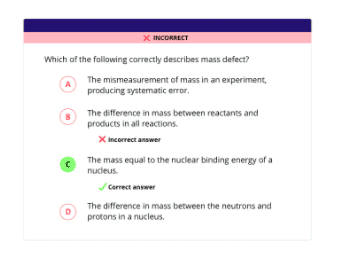
Additional features from both courses are of great quality. However, I find TPR’s practice questions and flashcards app better overall.
Winner: The Princeton Review
Kaplan vs The Princeton Review MCAT: Pricing
Kaplan MCAT
|
Course |
Price |
|
DIY Course (self-paced) |
$1799 |
|
DIY Course Plus |
$2299 |
|
Live Online |
$2499 |
|
Live Online Plus |
$2999 |
|
Bootcamp |
Approx. $7000 |
|
Tutoring |
From $3699 |
The Princeton Review MCAT
|
Course |
Price |
|
Self-paced |
$1699 |
|
Ultimate Course |
$2599-$2799 |
|
510+ Course |
$3099-$3399 |
|
515+ Immersion |
$6699-$6999 |
|
Tutoring (10 hours) |
$200/hr |
|
Tutoring (60 hours) |
$183/hr |
In terms of pricing, Kaplan wins. In most of the packages offered, the prices are less expensive than that of The Princeton Review. Where content is concerned, however, you get what you pay for. TPR has more content for a higher price.
However, if you’re trying to save a couple of hundred bucks, Kaplan is very much worth the investment.
If you’re willing to invest in a more expensive MCAT prep course that ensures a particularly high score (510+ or 515+), then you can go for TPR’s courses. It helps a lot that your course guarantees a certain score you need for the school you prefer.
Since Kaplan is less expensive in most of the options, I give them the edge for this category.
Winner: Kaplan
Kaplan vs The Princeton Review MCAT: User Experience
From this point on, we’ll compare the courses’ ease of use and interface. I provided some screenshots to give you a better look at what you’ll get out of each course.
Dashboard
This is Kaplan’s dashboard. It has a simple yet good-looking design. What I like about Kaplan’s dashboard is that the whole curriculum is already available and displayed. Plus, you’ll be able to see how much time it takes to finish one video lesson or practice quiz, so you can plan ahead.
Now, this is The Princeton Review’s dashboard. Like Kaplan, its design isn’t anything fancy. It’s not difficult to look at, and it’s easy to use. The curriculum for the course is also already displayed. You just have to click a certain chapter to see its sub-parts.
TPR also displays your goals on the MCAT. This keeps you motivated and aware of your progress.
Both dashboards from Kaplan and TPR are easy to use and designed for efficient studying, so I’ll make it a tie for this category.
Winner: Tie
Video Lesson
Kaplan’s and TPR’s video lessons are among the best in the MCAT prep industry. Although different in styles, I can say that their videos are effective and really helpful.
Above are screenshots of Kaplan’s video lessons on Normality and Acid-Base Solutions and Neuropsychological Studies. What I like about Kaplan’s videos is that they are really creative. Kaplan does a good job of utilizing colorful images and figures to make the lesson more comprehensive.
What I’m not a fan of is the way they solve problems. For the most part, they use computerized texts in showing the solution process. I personally prefer handwritten solutions. But hey, to each his own.
The screenshots above are from The Princeton Review’s video lessons on Biology and Biochemistry. TPR’s video lessons are a bit different from Kaplan’s. What I find great about their videos is that the instructor in the background uses a marker to show solutions or processes. However, The Princeton Review’s video lessons are not as creative as Kaplan’s. They utilize fewer images and figures.
What I did not like about TPR’s video lessons is the terrible sound quality. It seemed like the recording of the voices in the videos were not clean and clear. It was difficult to listen to the lesson because of this.
Other than the bad sound quality, TPR’s video lessons gave me that classroom-like experience, which I personally prefer.
For this category, I give the very slim advantage to The Princeton Review. I just like it better when instructors write the lessons on the board. It felt more authentic. Plus, TPR did a better job of helping me understand the MCAT concepts further. One improvement they need, however, is the video sound quality.
Winner: The Princeton Review
What makes each prep course unique?
- For Kaplan:
-
-
- Qbank: This feature is a massive storage of practice questions on different sections of the MCAT. What’s great about it is that it segregates questions according to what you answered correctly, incorrectly, or those that you have yet to answer. You can also bookmark certain practice questions if you want to go back to them later.
-
- MCAT Channel: This platform gives students the option to learn in the comfort of their own homes and at their own pace. With the MCAT Channel, you can have access to both live and pre-recorded lectures that they can view at any time. This feature is ideal for those who prefer to study for the MCAT by themselves.
- For The Princeton Review:
- 510+ and 515+ guarantee: These options by TPR are ideal for students who are looking to get into the top med schools nationwide. If you want to get into a particular med school, these options will give you a confidence boost. They come with higher prices, however.
Kaplan vs The Princeton Review MCAT: Which one is the best?
Both Kaplan and The Princeton Review MCAT are great prep courses. It’s not surprising that the two are considered the best in the MCAT test prep industry. If I were to choose one, however, I’d choose TPR.
TPR brings more to the table in terms of live instruction hours and review books. Plus, I find their video lessons more substantial, and their live classes more comprehensive. TPR might be the more expensive course, but taking it is worth it if you ask me.
Still, I give major props to Kaplan for a terrific MCAT prep course. It’s ideal for a lot of students, especially if they’re trying to save a couple of hundred bucks.
This is a tough call, and the margin is very slim, but I choose TPR as the winner.
Overall winner: The Princeton Review
Frequently Asked Questions
References
- https://www.princetonreview.com/medical/mcat-guarantee
- https://ww2.kaptest.com/mcat/practice/mcat-prep-qbank

